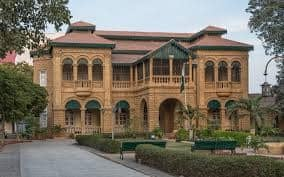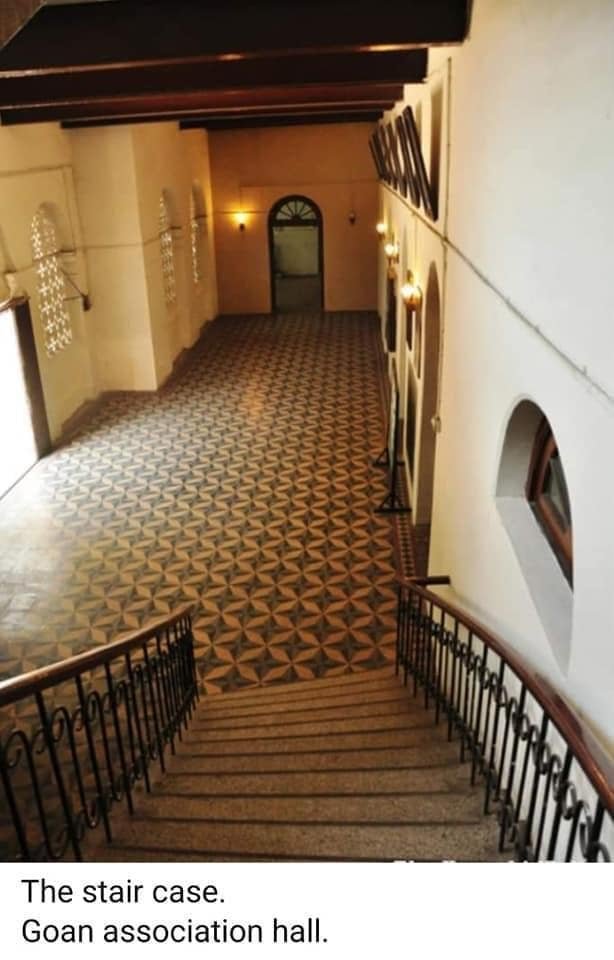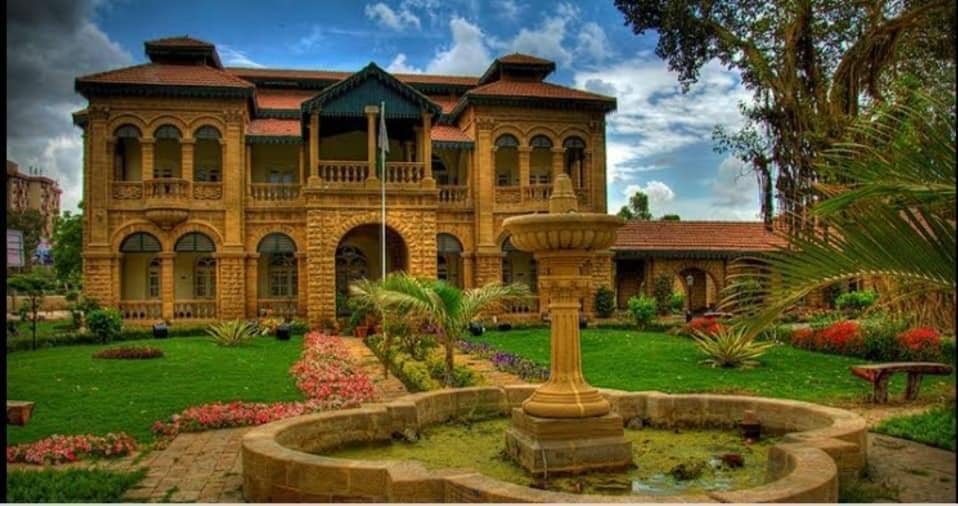
A ghost story from #Karachi #thread
The following is a ghostly legend that took place in Karachi before partition of 1947. It was passed down by Wayne Croning's family and some of the dates mentioned here are factual...



The following is a ghostly legend that took place in Karachi before partition of 1947. It was passed down by Wayne Croning's family and some of the dates mentioned here are factual...




As the Collector of Karachi; Henry S. Lawrence led a busy life. He was married to Phyllis in 1899. Together they had three children. Life for Phyllis was anything but leisurely; she had young children to raise, with the help of an ayah of course; but still had a house to run,
servants to oversee and had to make a few public appearances with her husband as well as on her own. Tea parties, social gatherings, Christmas dances were things she looked forward to. She had a keen interest in gardening and horseback riding. On many occasions, she would take
over the reigns of the
family carriage from the hired ‘Sai’ (horse keeper). Karim kept the horses fed and groomed and also maintained the carriage and carriage house that was detached from the rest of their colonial stone and brick villa in the heart of E.I. Lines in Karachi.
family carriage from the hired ‘Sai’ (horse keeper). Karim kept the horses fed and groomed and also maintained the carriage and carriage house that was detached from the rest of their colonial stone and brick villa in the heart of E.I. Lines in Karachi.
She was able to communicate in basic Urdu to the household staff but the children were even more fluent, as they spent a lot of time with ayah and her children. Her husband had studied Urdu and this worked well in his daily work routine, dealing with clerks, accountants and the
local staff. One hot summers day in 1912; after leaving the children with ayah and seeing to afternoon tea, Phyllis decided to take the carriage out by herself. She walked over to the carriage house.
“Karim, tonga ko juldi tayar rukho. Meh Clifton ko jar raha hoo.” She told him. (get the carriage ready, I am off for a ride to Clifton.) “Theek hai, mem Sahib”. He replied. He got to work getting the bridles ready, escorting the horse and carriage out into the large circular
driveway. He brought over a wooden step stool and helped Phyllis climb onto the driver’s seat, a wooden bench topped by a padded leather cushion .
She told him she needed to cool off and would be back in about two hours. Pulling on the reigns, she clicked with her tongue and
She told him she needed to cool off and would be back in about two hours. Pulling on the reigns, she clicked with her tongue and
gently prodded the horse with the whip. Heading towards Drigh Road, she made a left and was soon crossing the Clifton bridge, towards the sea. After about twenty minutes of riding at a graceful trot, the horse became startled by a stray dog, that had come out of nowhere.
The dog chased the carriage, nipping at the horse’s legs. Phyllis tried to calm the horse, but it began galloping now, completely out of control. She tried to call out to it, above the barking of the dog, who slowly got left behind, but the horse kept on, wild eyed.
Phyllis leaned over to try and undo the harness and this is when she lost her balance and falling off to the side, her long hair, now undone, got caught in the spokes of the wheel and pulled her right off, dragging her alongside the carriage.
“Sai, Sai! Bachow!! She screamed out for Karim.
After dragging her body for half a mile, the horse was finally stopped by a group of soldiers, on their way to their barracks. They managed to drag her off to the side of the road, but it was too late. Phyllis lay dead & bleeding.
After dragging her body for half a mile, the horse was finally stopped by a group of soldiers, on their way to their barracks. They managed to drag her off to the side of the road, but it was too late. Phyllis lay dead & bleeding.
Later that afternoon her husband was just finishing off some paperwork when the clerk came running in with the news. Shocked and devastated; Henry rode off to the infirmary, hoping to find his beloved still alive, but alas; it was not to be. Breaking the news to the children
was the hardest thing he had ever done. News was sent to her family, some in England some still in India. In a few weeks, Henry erected a large mausoleum around her final resting place. Built of local Gizri stone, It had a white dome supported by stone pillars all around.
Then suddenly one night, he was out sitting on the front porch, smoking his pipe when he heard a faint voice in the distance...
“Sai, buchow, Sai buchow”. It got closer and more audible. It was his beloved Phyllis. The pipe fell from his mouth and he stood up, looking up and
“Sai, buchow, Sai buchow”. It got closer and more audible. It was his beloved Phyllis. The pipe fell from his mouth and he stood up, looking up and
down the street, but saw nothing.
“Must be my imagination.” He thought to himself. But for the next few evenings, he experienced the same thing; at the same time.
“It is her! It has to be!!” he thought out loud.
“Must be my imagination.” He thought to himself. But for the next few evenings, he experienced the same thing; at the same time.
“It is her! It has to be!!” he thought out loud.
Then one night while sitting alone in the living room, he heard a soft voice, Phyllis’ voice; it was so close, he could almost feel her presence.
“I love you Henry; forgive me.”
He got no sleep for the next few days and eventually went to see his parish priest/reverend.
“I love you Henry; forgive me.”
He got no sleep for the next few days and eventually went to see his parish priest/reverend.
“Pastor, I keep hearing her voice, her plea for help. Am I just imagining things??”
“Henry, I know things are hard on you, what with the kids being so small, and the sudden loss. You should re-marry soon. Sometimes the dead, especially ones killed suddenly come back, or their
“Henry, I know things are hard on you, what with the kids being so small, and the sudden loss. You should re-marry soon. Sometimes the dead, especially ones killed suddenly come back, or their
spirits do. They may not realize that they are dead, or if they do, they come back to console us. It is a divine mystery. If it pleases you, I will go bless the grave tomorrow morning with you.”
“Fine, Pastor, let us do this.” Henry replied, a tear rolling down his cheek.
“Fine, Pastor, let us do this.” Henry replied, a tear rolling down his cheek.
The next morning Henry picked the Pastor up and they headed to the cemetery. The Pastor read some verses from the Bible, said some blessings and they headed back. In a week, Henry had a large chain placed in a decorative style right around the mausoleum.
In a year he re-married, eventually taking his newly-wed wife and children back to England. He never heard voices again.
I took the photo at the bottom in 1992; the older one was found on the internet. In 1992, the grave was crumbling and neglected.
I took the photo at the bottom in 1992; the older one was found on the internet. In 1992, the grave was crumbling and neglected.
Recently the British Council took steps to repair, re-plaster and paint the grave.
Narrated by Wayne Croning
Narrated by Wayne Croning
• • •
Missing some Tweet in this thread? You can try to
force a refresh























